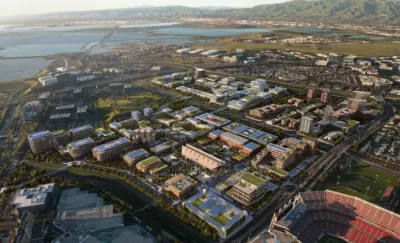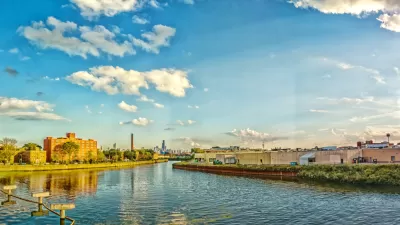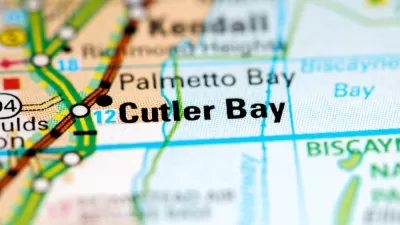Despite the economic uncertainty and reports of a massive upheaval in patterns of living and working in the United States, developers are continuing to spend billions of dollars on massive development projects all over the country.

Kim Slowey details the status of mega-project development around the United States, as the country deals with the economic fallout of an ongoing public health crisis after a decade of steady growth in the mega-project market. According to an FMI Corp study published in the fall of 2019. The annual value of mega-project startups increased from 3 percent to 33 percent over the past decade.
"As the COVID-19 outbreak hit, many massive, mixed-use projects were in various stages of development. For those that were already underway, the pandemic hasn't seemed to significantly change developers' decision-making," explains Slowey before checking on the status of the country's largest mega-projects, including an $8 billion development by Related Cos. in Santa Clara, the $6 billion Lincoln Yards project by Sterling Bay Companies in Chicago, the $5.5 billion Port Covington development by Weller Development in Baltimore, and more. Other mega-projects listed in the article are found all over the country—from Rochester, Minnesota to Atlanta to Islip, New York to Frisco, Texas.
"It remains to be seen, however, what the ultimate effect will be as remote working has gained popularity, and potential tenants and residents have eschewed urban living for the suburbs in order to gain some physical distance from each other," writes Slowey.
FULL STORY: Crane watch: 7 mixed-use projects costing mega-billions

Alabama: Trump Terminates Settlements for Black Communities Harmed By Raw Sewage
Trump deemed the landmark civil rights agreement “illegal DEI and environmental justice policy.”

Study: Maui’s Plan to Convert Vacation Rentals to Long-Term Housing Could Cause Nearly $1 Billion Economic Loss
The plan would reduce visitor accommodation by 25% resulting in 1,900 jobs lost.

Planetizen Federal Action Tracker
A weekly monitor of how Trump’s orders and actions are impacting planners and planning in America.

Waymo Gets Permission to Map SF’s Market Street
If allowed to operate on the traffic-restricted street, Waymo’s autonomous taxis would have a leg up over ride-hailing competitors — and counter the city’s efforts to grow bike and pedestrian on the thoroughfare.

Parklet Symposium Highlights the Success of Shared Spaces
Parklets got a boost during the Covid-19 pandemic, when the concept was translated to outdoor dining programs that offered restaurants a lifeline during the shutdown.

Federal Homelessness Agency Places Entire Staff on Leave
The U.S. Interagency Council on Homelessness is the only federal agency dedicated to preventing and ending homelessness.
Urban Design for Planners 1: Software Tools
This six-course series explores essential urban design concepts using open source software and equips planners with the tools they need to participate fully in the urban design process.
Planning for Universal Design
Learn the tools for implementing Universal Design in planning regulations.
Caltrans
Smith Gee Studio
Institute for Housing and Urban Development Studies (IHS)
City of Grandview
Harvard GSD Executive Education
Toledo-Lucas County Plan Commissions
Salt Lake City
NYU Wagner Graduate School of Public Service




























